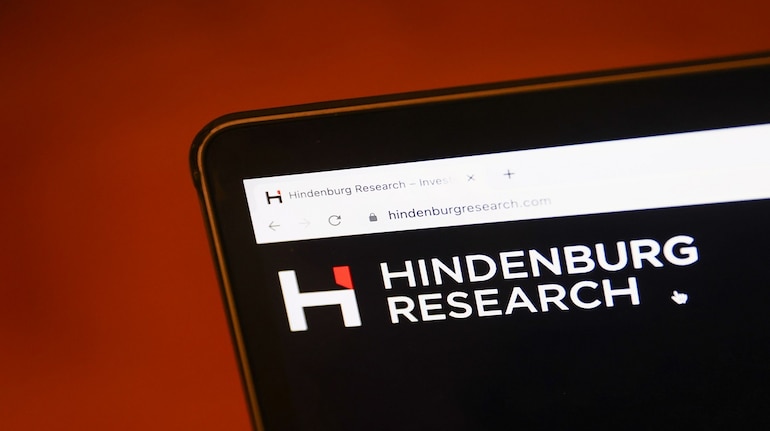



The doctrine of arm’s length and disclosures is one of the strongest pillars on which the edifice of any robust regulatory architecture stands. This is particularly true of modern financial markets, where billions of dollars move across continents with the click of a mouse.
In the current context, it may be worthwhile to examine US short-seller Hindenburg Research’s latest allegations against Securities Exchange Bureau of India (SEBI) chairperson Madhabi Puri Buch through this lens.
When evaluating investments, the arm’s length principle suggests that investors should make decisions based on objective analysis and without any undue influence or insider information. It emphasizes fairness and transparency in financial transactions.
So, how does Hindenburg’s finger-pointing at the SEBI chairperson hold up against this tenet? Let’s examine this.
Hindenburg Research has alleged that Madhabi Puri Buch and her husband, Dhaval Buch, held stakes in the same Bermuda and Mauritius funds used by Vinod Adani, brother of Adani Group chairman Gautam Adani.
The Buchs have now said that these investment decisions were made two years before Madhabi’s appointment as a SEBI director and when they were private citizens living in Singapore. Importantly, the investment was redeemed in 2018 and never involved Adani group securities.
This revelation, which is now in the public domain, is an essential element as it does stand up to the tenets of the doctrine of disclosure. Madhabi Buch and her husband’s investment in the said offshore investment company was redeemed in 2018, four years before she assumed charge as the SEBI chairperson.
This accusation, to withstand the scrutiny of law, will need more rigour, information and clinching evidence to establish a quid pro quo between investments in Adani group companies, if any, by the Buchs, much before she became SEBI chairperson.
The allegation here is against SEBI and its processes. This would require significant substantiation. The latest Hindenburg Research report, based on what has been published, appears thin on information and short on investigative rigour.
There is also a bigger question about the doctrine of recusal. In any judicial, quasi-judicial or regulatory system, individuals, even if remotely connected to a case, perceived or otherwise, should recuse or step aside from any fact-finding or investigative exercise. This is essential to nullify any possibility of prejudice or bias leading to a conflict of interest.
What do the details suggest here? Hindenburg Research’s first report on the Adani Group in 2023 has been subjected to a judicial and regulatory inquiry at the highest level. In light of the recent charges, the key question is whether the SEBI chairperson made the disclosures and followed the due process of recusal.
Market regulator SEBI late on August 11 said that its chairperson Madhabi Buch made relevant disclosures from time to time and recused herself in matters involving potential conflicts of interest.
The regulator also said that it has duly investigated the allegations made by Hindenburg against Adani and noted that the last of its 26 investigations is nearing completion now.
It further stated that Madhabi’s consulting companies from Singapore became dormant upon her SEBI appointment and were disclosed as part of her SEBI disclosures.
SEBI’s statement, read with the latest Hindenburg Research’s accusations, raises another important question: the matter was examined by the Supreme Court (SC) and an SC-appointed panel.
On January 3, 2024 a three-judge bench headed by Chief Justice of India D.Y. Chandrachud declined to order a CBI or SIT probe. In its judgment, the apex court said market regulator SEBI was conducting a “comprehensive investigation” into the allegations and its conduct “inspires confidence”, reposing faith in capital markets regulator.
On May 19, 2024, the SC made public the report of the six-member expert panel in the Adani-Hindenburg case. The report said that capital markets regulator Securities and Exchange Board of India (SEBI) has “drawn a blank” in investigations into suspected violations in overseas investments in the Adani group and that its ongoing pursuit of the case could be a “journey without a destination.”
The committee headed by Justice Abhay Manohar Sapre, formerly of the Supreme Court, said in its report that there was no evidence of a “regulatory failure” on the part of SEBI, even though it acknowledged a need for effective enforcement policy.
The latest Hindenburg Research accusations effectively seek to dismiss even the SC-monitored scrutiny. Effectively, it questions India’s judicial institutions’ fairness and non-prejudicial stance.
At this point, purely on the basis of what the US short-seller has put out, this appears a bit far-fetched. It needs to be supported by enough corroborative evidence to substantiate the claims and not risk Hindenburg’s credibility.
Discover the latest Business News, Sensex, and Nifty updates. Obtain Personal Finance insights, tax queries, and expert opinions on Moneycontrol or download the Moneycontrol App to stay updated!
Find the best of Al News in one place, specially curated for you every weekend.
Stay on top of the latest tech trends and biggest startup news.